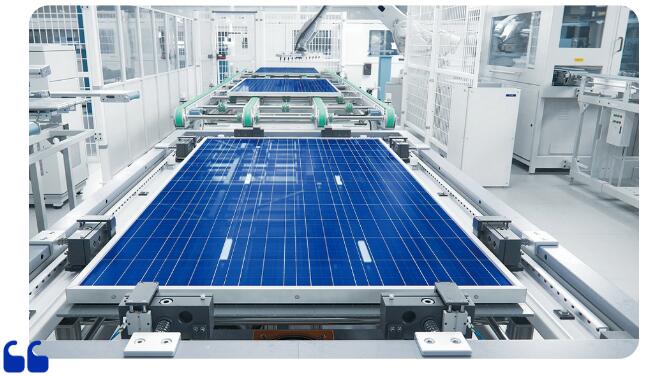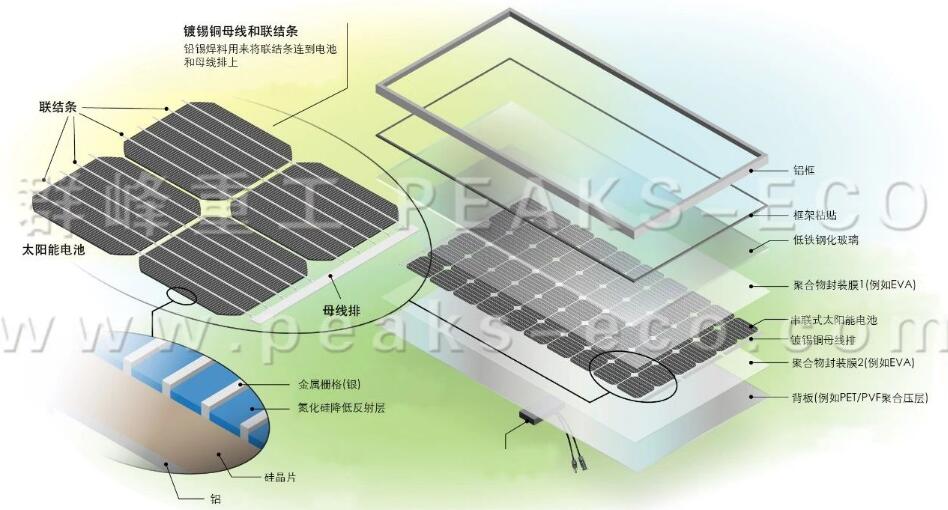
PV panel recycling has several advantages and some challenges. On the positive side, it helps conserve valuable resources, promotes environmental sustainability by reducing waste and carbon footprints, opens up economic opportunities, and ensures compliance with environmental regulations where needed. However, there are some downsides, including the technical complexity of recycling, high initial costs, limited recycling infrastructure in some areas, and potential risks associated with handling hazardous materials. Overall, the benefits of PV panel recycling far outweigh the drawbacks, making it an important practice for realizing a greener, more sustainable energy future. PV panels can be disassembled and a variety of valuable materials can be extracted, such as silicon, aluminum, silver, and copper, which can be reused to produce new PV panels and electronic components. When analyzing the composition of PV panels, most of them can be reused and used again as recyclable materials.
Recycling should be considered when PV panels reach the end of their useful life, are damaged beyond repair, or are upgraded to a more efficient PV panel. In general, here are some scenarios when recycling of PV panels should be considered:
- End of life: PV panels typically have a life expectancy of 25-30 years, after which time their efficiency declines.
- Technical failure: If a PV panel suffers a major technical failure, such as extensive battery damage or electrical problems, recycling is more practical than repair.
- Upgrades: When the decision is made to replace existing PV panels with more advanced and efficient models, recycling ensures that the old panels are disposed of correctly.
- Catastrophic Damage: After a natural disaster or severe storm, damaged panels that cannot be repaired should be recycled to minimize the impact on the environment.
- Environmental regulations: In some regions, there are regulations and requirements regarding the proper handling and recycling of PV panels.
Recycling PV panels in these situations is not only environmentally responsible, but also helps to recover valuable materials for new PV panels and reduce waste.
As the global shift to green energy accelerates and deepens, and solar applications become more widespread, the management of large numbers of retired PV panels will become a burden to the solar industry. Recycling PV panels has several significant benefits for the environment and cost savings:
- Environmental protection: Recycling PV panels is an environmentally conscious practice that avoids landfill disposal and prevents environmental pollution. As recycling technology advances and demand for recycled materials increases, the economic benefits of recycling become even more substantial.
- Resource recovery: PV panels contain valuable materials such as silicon, aluminum, silver, copper and rare metals. Recycling PV panels favors the circular economy, in which materials are reused to create sustainable supply chains.
- Additional income: In addition to the environmental and resource benefits, recycling PV panels can generate additional income.

- France: in 2018, thanks to the joint efforts of PV CYCLE and the waste organization Veolia, the first PV panel recycling plant in Europe was set up in France. in June 2023, the world's first plant dedicated to the complete recycling of photovoltaic panels was officially opened in France. rossi, a company specializing in the recycling of solar panels, with a plant located in Grenoble, has the goal of extracting and utilizing 99% of the modules.
- Germany: In Germany, the recycling of PV panels is usually carried out by specialized recycling organizations and companies. A major organization is the German branch of PV Cycle, a non-profit organization created by the European solar industry and active in Germany and other European countries. PV Cycle coordinates the recycling, disposal and material recovery of solar panels, ensuring compliance with environmental regulations.
- Italy: The Italian government has introduced a relevant policy. The financing of PV module waste depends on its classification: PV modules categorized as household waste (i.e., PV modules of PV plants installed with a power of less than 10 kW) are financed by the producers on the market in proportion to their respective market shares in the year in which the costs are incurred.